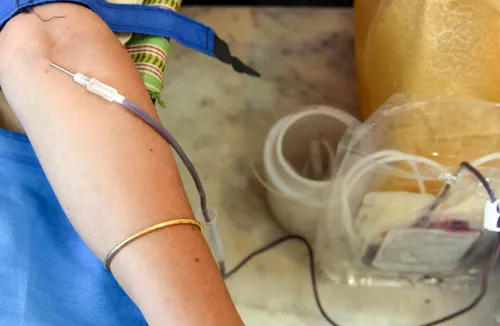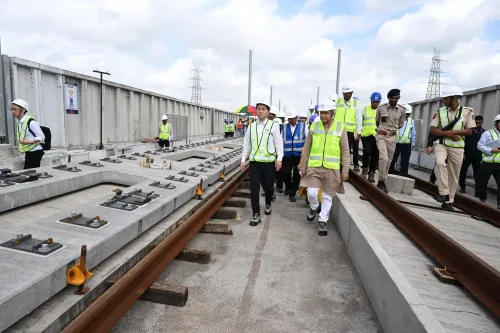Is the Cabinet Approving a Rs 4,200 Crore Initiative to Elevate Technical Education in India?

Synopsis
Key Takeaways
- The MERITE Scheme will invest Rs 4,200 crore in technical education.
- It will enhance 275 institutions, benefiting approximately 7.5 lakh students.
- The initiative aligns with the National Educational Policy-2020.
- Key focuses include employability, digitalization, and multidisciplinary curricula.
- Prestigious institutions will support implementation efforts.
New Delhi, Aug 8 (NationPress) The Union Cabinet, led by Prime Minister Narendra Modi, has given the green light to a significant initiative aimed at enhancing technical education. This initiative, known as the 'Multidisciplinary Education and Research Improvement in Technical Education' (MERITE) Scheme, will allocate Rs 4,200 crore for the betterment of 275 technical institutions, which includes 175 engineering colleges and 100 polytechnics, from 2025-26 to 2029-30.
According to a Cabinet statement, Rs 2,100 crore of the total outlay will be sourced through a loan from the World Bank.
The scheme's aim is to enhance the quality, equity, and governance of technical education throughout all states and Union Territories (UTs) by implementing strategies that align with the National Educational Policy-2020 (NEP-2020).
Approximately 275 government and government-aided technical institutions are expected to receive support under this plan, which will include selected National Institutes of Technology (NITs), State Engineering Institutions, Polytechnics, and Affiliating Technical Universities (ATUs). Moreover, state and UT departments overseeing technical education will also benefit from the MERITE initiative. An estimated 7.5 lakh students are projected to gain from this scheme.
In addition to generating more employment opportunities, the scheme aims to introduce digitalization strategies in the participating states and UTs, develop guidelines for multidisciplinary programs among technical courses, and enhance students' learning and employability skills.
Expected benefits include a rise in student transition rates across various groups, a strengthened research and innovation environment, improved quality assurance, and governance mechanisms, leading to long-term advantages such as increased accreditation and enhanced quality assurance at technical education institutions.
The initiative will also focus on launching relevant, labor market-aligned curricula and blended courses, alongside developing future academic leaders, particularly among women faculty.
The MERITE scheme will be applied to government engineering institutions and polytechnics across all states and UTs, with interventions aligned with NEP-2020 aimed at uplifting the quality, equity, and governance of participating institutions.
Prestigious educational entities like IITs and IIMs, along with regulatory bodies in higher education such as AICTE and NBA, will play pivotal roles in the execution of this initiative.
This program emphasizes enhancing students' skills to boost their employability through a comprehensive, multi-faceted approach. Key actions will include providing internship opportunities, updating curricula to meet industry standards, organizing professional development for faculty, and establishing research hubs.
Furthermore, support will extend to incubation and innovation centers, skill and maker labs, and language workshops, all aimed at improving the employability of new graduates, increasing placement rates, and ultimately reducing unemployment among engineering students in states and Union Territories.










